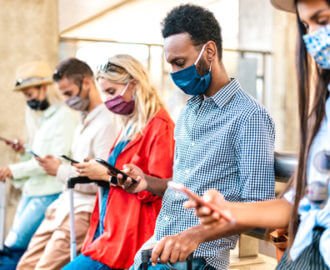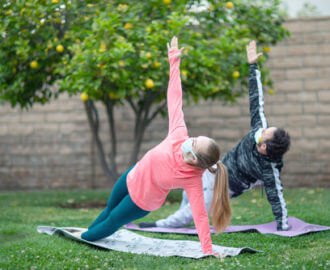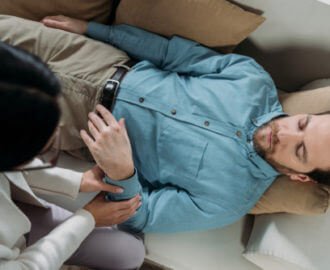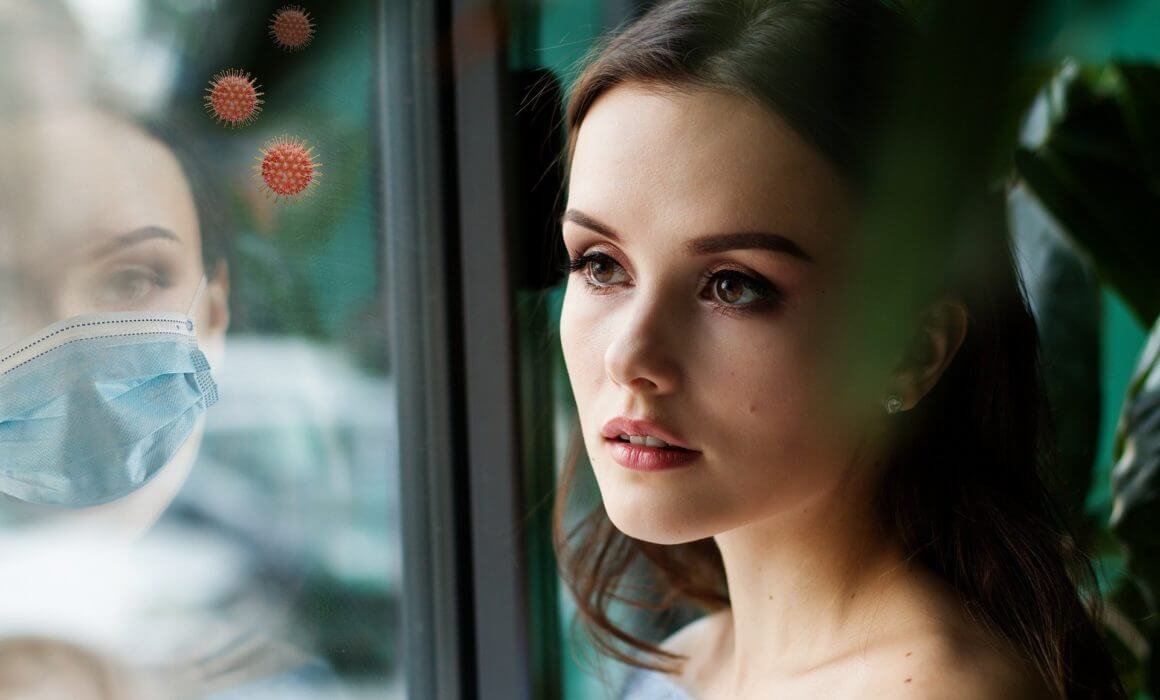7 Effective Ways To Cope with COVID-19 Anxiety
Does worrying about COVID-19 keep you up at night? As the current coronavirus pandemic drastically affects our way of life, it’s understandable to feel stressed and anxious. But here are some ways you can cope with COVID-19 anxiety.
*Note: This is for educational purposes only and not to be used as medical advice.
Accept then reframe
Recognize and allow yourself to feel those feelings— anger, confusion, worry. You can write about your feelings and note what triggers them.
These are challenging times. But research suggests that going through difficult situations can build psychological resilience.
Once you’ve acknowledged how you feel, reframing can help you adjust to those tough situations. For instance, instead of describing yourself as being cooped up at home, consider it as having more time to spend with loved ones or maybe an opportunity to pursue your hobbies or interests.
Reframing can also involve focusing on the things to be grateful for. In one fascinating study by the University of California, researchers noted that people who wrote about the good things that happened to them in the week felt happier and more optimistic after ten weeks.
Stay informed – but don’t overdo it
While it’s good to know what’s happening, you might want to avoid checking the number of cases over and over again. Too much information can be overwhelming.
Also, go to credible sources such as the World Health Organization (WHO) and the Center for Disease Control (CDC) sites for the latest health news and information about COVID-19. There’s a lot of fake news on the internet which can add to your stress.

Do some social media distancing
With physical distancing in place, social media is a great way to stay in touch with loved ones and be entertained.
However, if certain posts are bothering you, it’s better to take action.
If you have Facebook friends who constantly post about the pandemic, you can either hide their posts or snooze them for 30 days.
If you’re in a Facebook group that’s always talking about gloom and doom, you can choose to be notified only when your friends post or even turn the notifications off.
(Join the EveryBody in Mind Wellness Facebook page for useful tips)

Keep your hands busy — literally
Anxiety can keep you in bed all morning and lost in your worries. So start the day by making your bed.
Yes, working with your hands has been proven to make people calmer.
Dr. Kelly Lambert, a neuroscientist at the University of Richmond proposed that repetitive tasks that use your hands (e.g. cooking, knitting, painting) releases hormones such as dopamine and serotonin that make us feel calmer. She calls these activities behavior-ceuticals in a recent TEDx Talk.

Do Yoga
There’s been growing evidence that yoga is beneficial to overall health. Practicing yoga consistently can make you feel more relaxed, calm, and at ease.
While there are many forms of yoga, Kundalini yoga has been scientifically shown to improve symptoms related to anxiety and depression.
A 2018 study by Gabriel, et al noted that Kundalini yoga alleviated anxiety in people suffering from generalized anxiety disorder (GAD). Meanwhile, an earlier study concluded that this form of yoga showed great potential in helping people with obsessive-compulsive disorder.
Kundalini yoga involves breathing exercises, yoga poses, and meditation. If you’re interested in a class, you can book an online session via Zoom here. You could also book a 1:1 session.
Besides Kundalini yoga, there are also restorative yoga and vinyasa yoga classes available.
(Check out and Subscribe to our YouTube Channel for a FREE Zoom Kundalini Yoga Class)

Look for ways to help others
A recent study on self-esteem and compassion in people with anxiety showed that turning our attention to people who need our help can lower anxiety levels. Practicing compassion helps ourselves and others as well.
So, you might want to donate items to those in need, send thank you notes to the front liners in your community, or even teach people a skill that could benefit them during this crisis. Sometimes, even sharing about what you love can brighten someone’s day.
Reaching out and helping others can help you cope with COVID-19 anxiety.
Consider hypnotherapy
A large volume of research has proven that hypnotherapy is effective in reducing state anxiety (before surgery or medical procedures) and other anxiety-associated symptoms such as irritable bowel syndrome and headaches.
It may help you cope with COVID-19 anxiety and adjust better to the new normal.
Hemisphere Hypnotherapy addresses your concerns and questions you might have before setting an appointment. Some sections discuss how hypnosis works and how it can help.

So, what do you do when you feel anxious?
About the Author Madz De Leon is a health professional with a Master’s degree turned SEO health and wellness freelance writer. She loves doing yoga, belly dancing, and crocheting when she’s not busy running around with her active preschooler. You can see more of her work on The Write Strategist.


